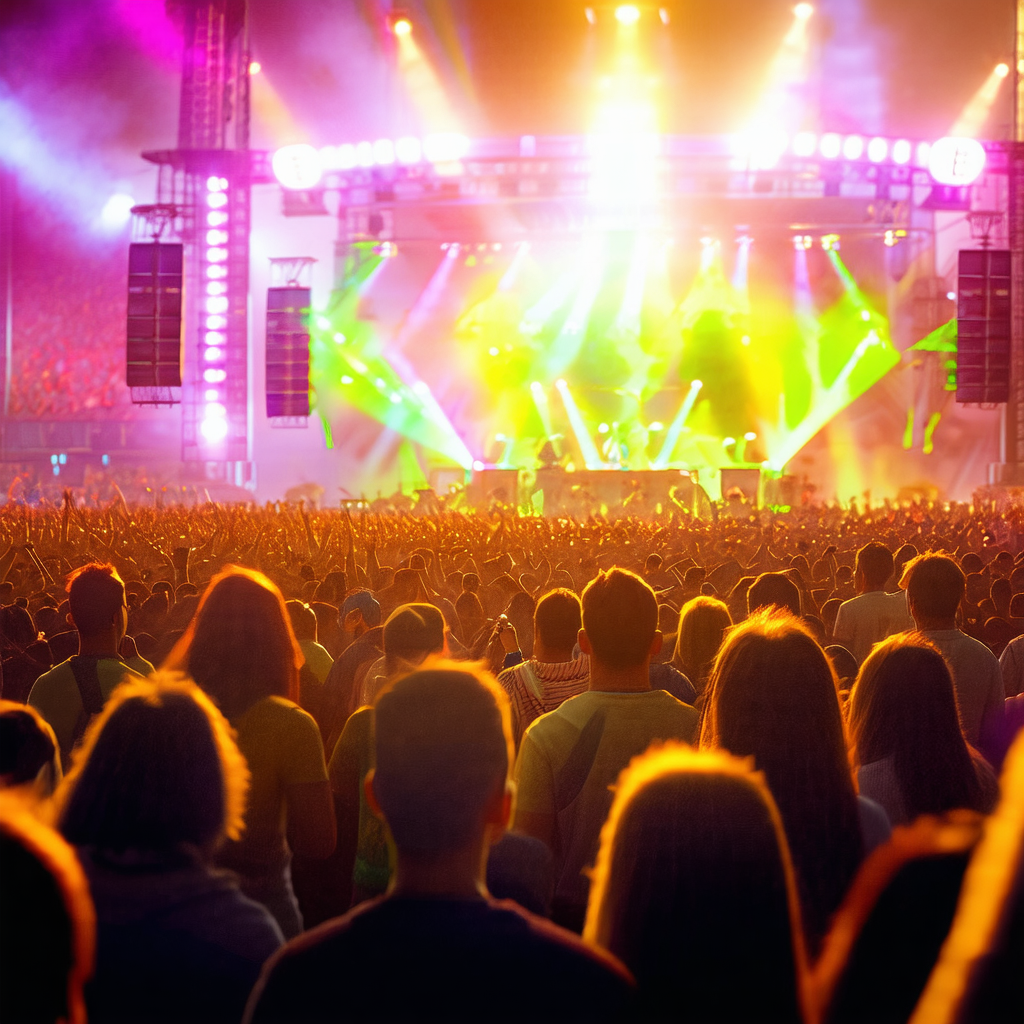Music festivals have been a staple of popular culture for decades, providing a platform for artists to showcase their talents and for fans to come together and celebrate their love of music. But music festivals are more than just a series of concerts – they are cultural events that reflect and shape the values and attitudes of society.
A Brief History of Music Festivals
The modern music festival as we know it today has its roots in the 1960s counterculture movement. Events like Woodstock and the Isle of Wight Festival brought together hundreds of thousands of young people to celebrate music, peace, and social change. These festivals were not just about the music, but about creating a sense of community and challenging the status quo.
In the decades that followed, music festivals continued to evolve and proliferate. The 1980s saw the rise of punk and new wave festivals, while the 1990s and 2000s saw the emergence of electronic dance music (EDM) festivals like Tomorrowland and Ultra Music Festival. Today, there are thousands of music festivals around the world, catering to every genre and style of music.
The Cultural Significance of Music Festivals
Music festivals are more than just a series of concerts – they are cultural events that reflect and shape the values and attitudes of society. They provide a platform for artists to express themselves and for fans to come together and celebrate their love of music. But music festivals also have a deeper cultural significance, reflecting and shaping the values and attitudes of society.
For example, music festivals have long been associated with social and cultural change. The 1960s counterculture movement, which spawned festivals like Woodstock and the Isle of Wight, was all about challenging the status quo and creating a new, more liberated society. Today, music festivals continue to play a role in promoting social and cultural change, with many events incorporating activism and charity work into their programming.
The Role of Music Festivals in Community Building
Music festivals also play a significant role in community building. They provide a space for people to come together and share their love of music, creating a sense of belonging and connection. This is particularly important in today’s world, where social media and other digital technologies have created a sense of isolation and disconnection.
Music festivals also provide a platform for artists to connect with their fans and build a sense of community around their music. Many festivals now incorporate interactive elements, such as workshops and meet-and-greets, that allow fans to get up close and personal with their favorite artists.
The Economic Impact of Music Festivals
Music festivals also have a significant economic impact on the communities that host them. According to a study by the International Festivals and Events Association, music festivals generate billions of dollars in revenue each year, supporting local businesses and creating jobs.
In addition, music festivals can also have a positive impact on local tourism, attracting visitors from around the world and showcasing the unique culture and attractions of the host community.
The Challenges Facing Music Festivals
Despite their cultural and economic significance, music festivals face a number of challenges in today’s world. One of the biggest challenges is the rising cost of production, which has led to increased ticket prices and a decline in attendance at some festivals.
Another challenge facing music festivals is the issue of safety and security. With the rise of terrorism and other forms of violence, music festivals have become a potential target for attacks. This has led to increased security measures at many festivals, including the use of metal detectors and bag checks.
Conclusion
Music festivals are more than just a series of concerts – they are cultural events that reflect and shape the values and attitudes of society. They provide a platform for artists to express themselves and for fans to come together and celebrate their love of music. But music festivals also have a deeper cultural significance, reflecting and shaping the values and attitudes of society.
As the music festival landscape continues to evolve, it will be interesting to see how these events adapt to the challenges and opportunities of the 21st century. One thing is certain, however – music festivals will continue to play a vital role in shaping our culture and society for years to come.


